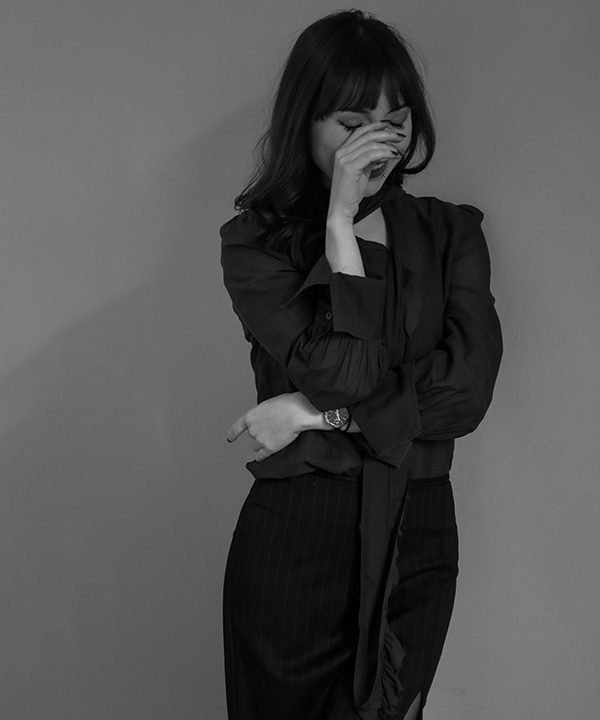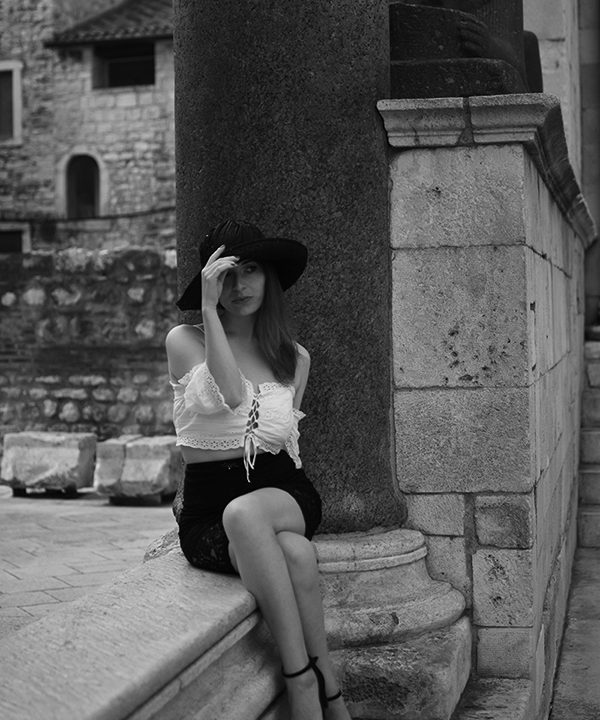
The Dream
September 12, 2025
On the Privilege of Starting Alone
October 1, 2025

I have always, in a way, been fascinated by the idea of destiny. Or, perhaps more precisely, by the people who seriously align their lives in expectation of magical circumstances that will put their existence in order, instead of planning the realisation of their desires and taking bold action toward the achievement of their goals. I have always looked at that understanding of reality as too shallow, too frightened, and too far removed from directing one’s own stage.
In this life, I believe, we are the subjects. Placing any person in the state of object, or passivating him, is an underestimation of his abilities and I am strongly against it. The beauty of life lies in the imperfection that is reachable (or livable) only by arriving before you are ready, by doing the unexpected and by this I mean the unexpected’for you as subject, not the things that others do not bank on seeing.
In the middle of the contradiction that has followed me all my life, I found myself one day realising that, for quite a long period of time, I had been expecting certain things to happen: conversations with those people who are always around and yet you never say hello to; work opportunities that seem easily reachable (too easily, almost, to take action toward them, as if actions were only justified when pursuing dreams); or banal life situations that do not fall into place by natural law—as the only one that works by itself, unfortunately, is the law of entropy.
As it usually goes in my life, those eureka moments arrive in the middle of familiar rituals, or during daily walks; you know, the situations that seem as random as if they had been planned beforehand. I met someone I had been, in some way, taking for granted as a future presence and, when passing by for probably the hundredth time without greeting one another, the thought but it doesn’t have to happen crossed my mind.
We don’t have to meet, even though we walk the same streets of Milan. That job doesn’t have to happen to me, even though I seem perfectly aligned for it. Things don’t fall into order by themselves—we have to take the final action and begin. The first always comes long before the second. So why does our nature so easily fall for waiting instead of initiating?
Sono sempre stata, in un certo senso, affascinata dall’idea di destino. O, forse più precisamente, dalle persone che organizzano seriamente la propria vita nell’attesa di circostanze magiche che metteranno l’esistenza in ordine, invece di pianificare la realizzazione dei propri desideri e agire con coraggio verso il compimento dei propri obiettivi. Ho sempre guardato a questo modo di intendere la realtà come a qualcosa di troppo superficiale, troppo impaurito—e troppo lontano dal dirigere la propria scena.
In questa vita, credo, siamo i soggetti. Ridurre una persona allo stato di oggetto, o passivizzarla, significa sottovalutarne le capacità e io sono fermamente contraria. La bellezza della vita risiede nell’imperfezione che diventa vivibile solo arrivando prima di essere pronti, facendo l’inaspettato, e con questo intendo l’inaspettato per se stessi come soggetti, non ciò che gli altri non si aspettano di vedere.
Nel mezzo della contraddizione che mi accompagna da sempre, mi sono ritrovata un giorno a realizzare che, per un periodo piuttosto lungo, avevo vissuto aspettando che certe cose accadessero: conversazioni con quelle persone che sono sempre intorno a te e che non saluti mai; opportunità di lavoro che sembrano facilmente raggiungibili (così facilmente da non spingerti ad agire, come se le azioni fossero giustificate solo nell’inseguimento dei sogni); o situazioni banali della vita che non si sistemano da sole per legge naturale—poiché l’unica legge che funziona davvero da sé, purtroppo, è quella dell’entropia.
Come spesso accade nella mia vita, quei momenti di eureka arrivano nel mezzo dei rituali quotidiani, o durante passeggiate familiari—quelle situazioni che sembrano tanto casuali da sembrare pianificate in anticipo. Ho incrociato qualcuno che, in qualche modo, avevo dato per scontato come presenza futura e, passando accanto per probabilmente la centesima volta senza salutarci, mi è attraversato il pensiero: ma non deve per forza accadere.
Non dobbiamo incontrarci, anche se percorriamo le stesse strade di Milano. Quel lavoro non deve accadere a me, anche se sembro perfettamente allineata per ottenerlo. Le cose non si mettono in ordine da sole—siamo noi a dover compiere l’azione finale e cominciare. Il primo gesto viene sempre molto prima del secondo. E allora perché la nostra natura cade così facilmente nell’attesa, invece che nell’inizio?









